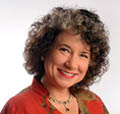If we were better at saying thank you, there wouldn't be 16 aisles in every stationery store displaying cards in multiple typefaces geared toward a wide range of age groups and socioeconomic demographics inscribed with those two words.
If we were better at expressing thanks, we wouldn't need a pre-packaged statement accompanied by glitter, a verse from the Bible (or Kahlil Gibran) or a character from "Peanuts" to do it for us.
If expressing gratitude were easy, we wouldn't have to lock our offspring in their rooms for weeks at a time, sustaining them via flat foods placed on a tray pushed under the door, until they successfully completed their thoughtful thank-you notes.
If an honest and heartfelt illustration of our pleasure at receiving a gift were uncomplicated, there would be no stress.
The otherwise cheerful pair of newlyweds who disagreed about whether he had to do more than sign his name to the thank-you cards she was sending out for the wedding gifts would never have had, for example, the following conversation:
"You have to do more than sign your name. It's not like autographing baseballs. You're supposed to tell them how much their present meant to you."
"I don't even remember what it was. It's nice that they brought something, but mostly I'm just glad they were here. And I told them that when I saw them."
But they did have this conversation, and although the bride married him because he was honest, she nevertheless wept a bit.
And then she learned to forge his handwriting.
If they stay together, it's a win-win. But if they split? I suspect he'll discover that everything they own is in her name, including the house, the cars and his shoes. His signature will be on every piece of paperwork, too.
But I digress.
The real issue is this: It's important to learn how to be grateful appropriately. That's why we torture our children into writing notes and learning how to offer gratitude both cheerfully and gracefully — because the opposite of gratitude looks suspiciously like greed, pride and hubris.
Ouch, right?
You thought it was simply laziness, torpor or the shrugging off of anachronistic habits that makes those notes hard to write, and even those conversations awkward to enter. ("Did you thank your brother for sending you that chain saw?" "Nah, he knows it's what I wanted. It's fine.")
I believe there are larger and scarier shadows behind the absence of thanks: When gratitude goes missing, ingratitude rushes in to fill the void. Entitlement and insolence follow quickly and slam the door behind them.
It's not pretty.
We've convinced ourselves that thank-yous are merely formulaic and ritualistic. They are; it's true. But that's exactly why we have to do them: rituals matter.
Rituals have mattered to every culture since we agreed to start peeing outside the cave. Everybody has to agree to perform the ritual or else risk living in a state of perpetual unpleasantness.
Yet it's as if we've come to believe we can outsource our rituals — or take shortcuts with them. We reassure ourselves that a nod of the head, a three-letter text or a lack of complaint is a sufficient display of acknowledgment.
That's not only misleading; it's a fiction. Thank-yous matter.
Oddly enough, of the 657 books on gratitude now published every week, few offer help. That's because we're being encouraged to show gratitude to the universe at large ("I have the attitude of gratitude for rainbows and puppies") but being let off the hook when it comes to addressing those actually in our lives.
"Thank you for listening to me when I'm down," we should say. "Thanks for always making me welcome in your home." Both "Thanks for helping me when I struggle" and "Thank you for helping me celebrate" are important.
"Thank you" (like "I love you" or "I'm sorry" — other short phrases appearing in many aisles of card stores) becomes easier to say the more often it's said.
The best way to offer thanks is simply to begin: Pick up a pen, a phone or your feet off the floor and continue the conversation someone else started with a gift.
Gina Barreca
The Hartford Courant
(TNS)
Comment by clicking here.
Gina Barreca is a columnist for The Hartford Courant.



 Contact The Editor
Contact The Editor
 Articles By This Author
Articles By This Author